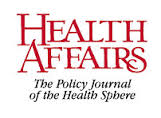MACPAC Meets
The Medicaid and CHIP Payment and Access Commission met for two days last week in Washington, D.C.
The following is MACPAC’s own summary of the sessions.
 The Medicaid and CHIP Payment and Access Commission kicked off its December meeting with highlights from its forthcoming issue of MACStats: Medicaid and CHIP Data Book, due out December 18, 2019. MACStats brings together statistics on Medicaid and State Children’s Health Insurance Program (CHIP) enrollment and spending, federal matching rates, eligibility levels, and access to care measures, which come from multiple sources.
The Medicaid and CHIP Payment and Access Commission kicked off its December meeting with highlights from its forthcoming issue of MACStats: Medicaid and CHIP Data Book, due out December 18, 2019. MACStats brings together statistics on Medicaid and State Children’s Health Insurance Program (CHIP) enrollment and spending, federal matching rates, eligibility levels, and access to care measures, which come from multiple sources.
Later the Commission discussed a proposed rule that the Centers for Medicare & Medicaid Services issued in November, which—among other changes—would increase federal oversight of Medicaid supplemental payments. The final morning session addressed payment error rates in Medicaid, with a briefing on the annual Department of Health and Human Services Agency Financial Report (AFR). Fiscal year 2019 was the first time that the AFR incorporated eligibility errors since the Patient Protection and Affordable Care Act’s Medicaid eligibility and enrollment changes took effect in 2014.
After lunch, MACPAC staff summarized themes from expert roundtables convened in November, one to explore Medicaid policy on high-cost specialty drugs and another on the need for more actionable Section 1115 demonstration evaluations. Then, the Commission turned its attention to Medicaid estate recovery policies. The final session of the day looked at issues associated with reforming the current Medicaid financing structure to better respond to economic downturns.
At Friday’s opening session, the Commission considered policy options to increase participation in Medicare Savings Programs, which provide Medicare cost-sharing assistance to beneficiaries who are dually eligible for Medicaid and Medicare. Afterward, the Commission continued its examination of care integration for dually eligible beneficiaries, this time focusing on policy options to reduce barriers to integrated care. The Commission then switched gears for a briefing on a new MACPAC analysis of Medicaid’s role in financing maternity care. The December meeting concluded with a review of the draft chapter for the Commission’s March report to Congress analyzing disproportionate share hospital (DSH) payments.
Supporting the discussion were the following briefing papers:
- MACStats: Medicaid and CHIP Data Book
- Review of Proposed Rule on Supplemental Payments and Financing
- Review of PERM Findings
- Themes from Expert Roundtable on Medicaid Policy on High-Cost Drugs
- Improving the Quality and Timeliness of Section 1115 Demonstration Evaluations: Themes from Expert Roundtable
- Medicaid Estate Recovery Policies
- Policy and Design Issues for a Countercyclical Federal Medicaid Assistance Percentage
- Medicare Savings Programs Policy Options
- Barriers to Integrated Care for Dually Eligible Beneficiaries
- Medicaid’s Role in Financing Maternity Care
- Review of Draft Chapter on Statutorily Required Analyses of Disproportionate Share Hospital Payment
Because they serve so many Medicaid and CHIP patients – more than the typical hospital – MACPAC’s deliberations are especially important to Pennsylvania safety-net hospitals.
MACPAC is a non-partisan legislative branch agency that provides policy and data analysis and makes recommendations to Congress, the Secretary of the U.S. Department of Health and Human Services, and the states on a wide variety of issues affecting Medicaid and the State Children’s Health Insurance Program. Find its web site here.
 According to the post, social determinants of health – income, education, decent housing, access to food, and more – significantly influence the health and well-being of individuals – including low-income individuals who have adequate access to quality health care. Medicaid, the post maintains, can play a major role in addressing social determinants of health.
According to the post, social determinants of health – income, education, decent housing, access to food, and more – significantly influence the health and well-being of individuals – including low-income individuals who have adequate access to quality health care. Medicaid, the post maintains, can play a major role in addressing social determinants of health.
 MACPAC advises the administration, Congress, and the states on Medicaid and CHIP issues. It is a non-partisan agency of the legislative branch of government.
MACPAC advises the administration, Congress, and the states on Medicaid and CHIP issues. It is a non-partisan agency of the legislative branch of government.

